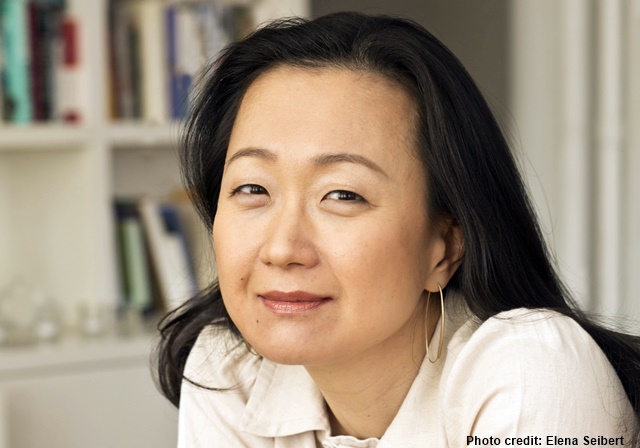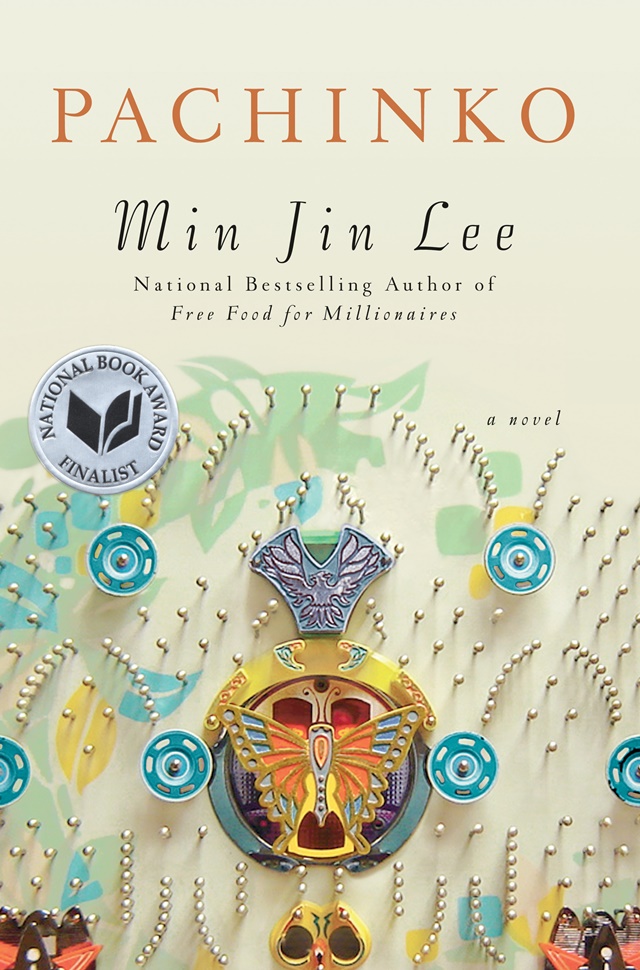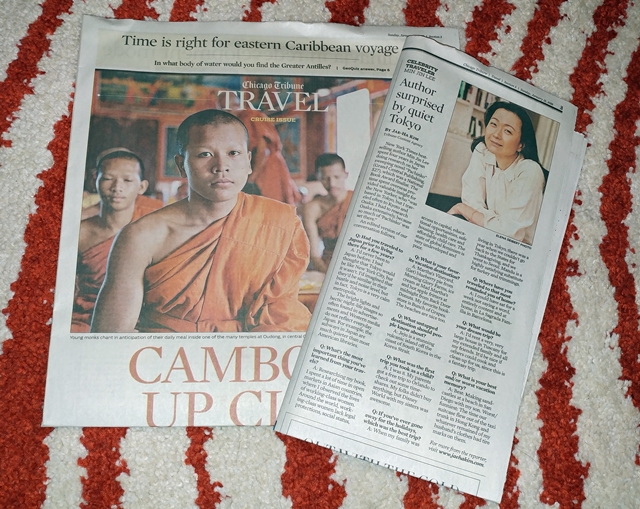
By Jae-Ha Kim
Chicago Tribune (and other outlets)
January 9, 2018
New York Times best-selling author Min Jin Lee spent four years in Japan doing research on her sweeping novel, “Pachinko” (Grand Central Publishing, $27), which was a National Book Award finalist. The time spent overseas provided valuable insight for the New Yorker, who “was based in Tokyo, but I traveled often to Kyoto and Osaka. I had to research Osaka extensively, because so much of ‘Pachinko’ was set there.”
For more information about her books, check out Lee’s website. Fans may stay in touch with her on Twitter and Facebook.
Q. Had you traveled to Japan prior to living there for a few years?
A. I’d never been to Japan before. I had thought that Tokyo would be like New York City, but it wasn’t. I’d imagined that they’d be similar in their bustle and noise level but, in fact, Tokyo is a very calm metropolis. The bright lights and hectic night-life images so often found in advertisements and Western media do not reflect every day Japan. For example, the subways in Japan are much quieter than most American libraries.
Q. Much is made of the historical animosity between Koreans and Japanese. What was your experience in Japan as a Korean-American?
A. My husband is half Japanese and half white European-American, and our son is half Korean, quarter Japanese and a quarter white European-American. We have family in Japan and in both South and North Korea. The tragic history of the Japanese annexation and colonization of the peninsula of Korea informs the present day, post-colonial relationship among the three nations. Terrible misunderstandings remain unresolved. Much of this history is not taught in Japan, which makes the situation more difficult for its people. Many people in neighboring Asian countries still recall the Pacific War with righteous indignation for the harms they suffered. Present-day Japanese are not responsible for the aggressive behavior of their past generations. However, we modern people are all responsible for historical transparency and accountability. As for my personal experience as an expatriate, there were several instances in which some Japanese people said some nutty things about Koreans, which I found bizarre and illogical more than offensive. By many — not all — Japanese, I was seen more as a Korean rather than as an American, even though I’m a naturalized American citizen and had spent nearly all of my life in America.

Q. What’s the most important thing you’ve learned from your travels?
A. Researching my book, I spent a lot of time in open markets in Asian countries, where I observed the lives of working-class women. Women cross culturally are challenged and harmed by the unyielding patriarchal structure of their respective societies. Around the world, working-class women lack legal protections, social status, access to capital, educational opportunities, safe housing, health care and affordable child care. The state of global feminism is very undeveloped and poor.
Q. What is your favorite vacation destination?
A. Martha’s Vineyard. (Get) blueberry pie from Morning Glory Farms, ice cream at Mad Martha’s and hot apple fritters at midnight from Back Door Donuts. My favorite bookstore is Bunches of Grapes. The beaches are nice, too.
Q. What untapped destination should people know about?
A. Jeju is a stunning volcanic island off the coast of South Korea in the Korea Strait.
Q. What was the first trip you took as a child?
A. I was eight. My parents got a free trip to Orlando to check out some time shares. My folks didn’t buy anything, but Disney World with my sisters was awesome.
Q. Have you traveled to a place that stood out so much that you felt compelled to incorporate it into your work?
A. After I visited Jeju, I knew that my main character, Hansu, had to have been born there.
Q. Where are your favorite weekend getaways?
A. I love most New England towns.
Q. Where is the most romantic destination?
A. Paris, New York and Venice. I know. Trite, but true.
Q. If you’ve ever gone away for the holidays, which was the best trip?
A. When my family was living in Tokyo, there was a year when we couldn’t go back to the States for Thanksgiving, and we went to Seoul. Mandu is a highly satisfying substitute for turkey and trimmings.
Q. What are your five favorite cities?
A. New York. Seoul. San Francisco. Boston. London.
Q. Where have you traveled to that most reminded you of home?
A. I could have sat for a week not saying a word, entirely content and at home, in La Sagrada Familia in Barcelona.
Q. Where would you like to go that you have never been to before?
A. Saint Petersburg.

Q. When you go away, what are some of your must-have items?
A. Ear plugs and eye mask.
Q. What would be your dream trip?
A. I’d rent a very, very large house in Tuscany for my extended family and all my friends. It’d be nice if others could cook and clean up for us, since this is a fantasy trip.
Q. What is your guilty pleasure when you’re on the road?
A. Banana splits and hot fudge sundaes. French fries.
Q. What is your best and/or worst vacation memory?
A: Best: Making sandcastles at a beach in San Diego with my son. Worst/Funniest: The time our suitcase flew out of the taxi trunk in Hong Kong and whatever remained of my husband’s clothes had tire marks on them.
Q. What are your favorite hotels?
A. When I’m in Palo Alto, I stay at the Cardinal Hotel, which has no air conditioning. In Paris, I go to the Plaza Athenee just to eat the grandest breakfast in the world.
Q. What are your favorite restaurants?
A. Paris: L’as du Falafel and Chez l’Ami Louis. London: Wolseley and Moro. New York: Gam Mee Ok, Balthazar, and Jean Georges. Tokyo: Maru and Ryugin.
© 2018 JAE-HA KIM
DISTRIBUTED BY TRIBUNE CONTENT AGENCY, LLC.